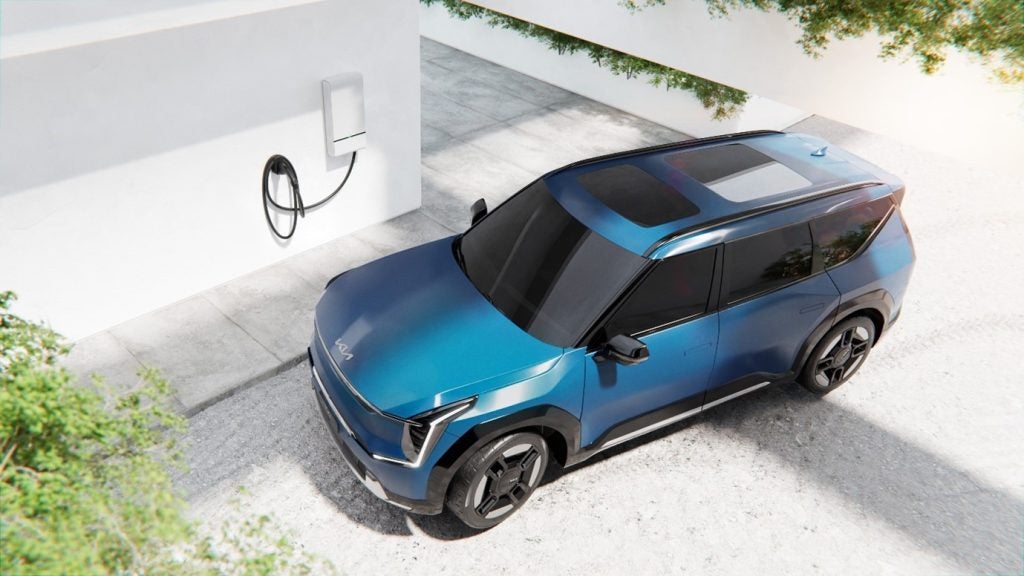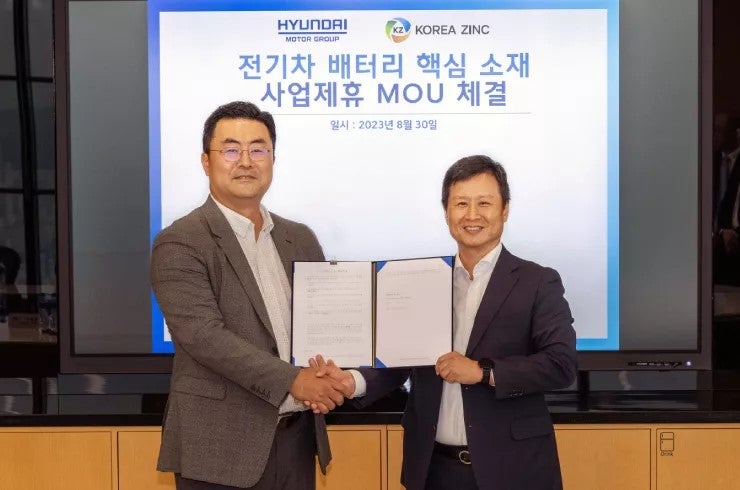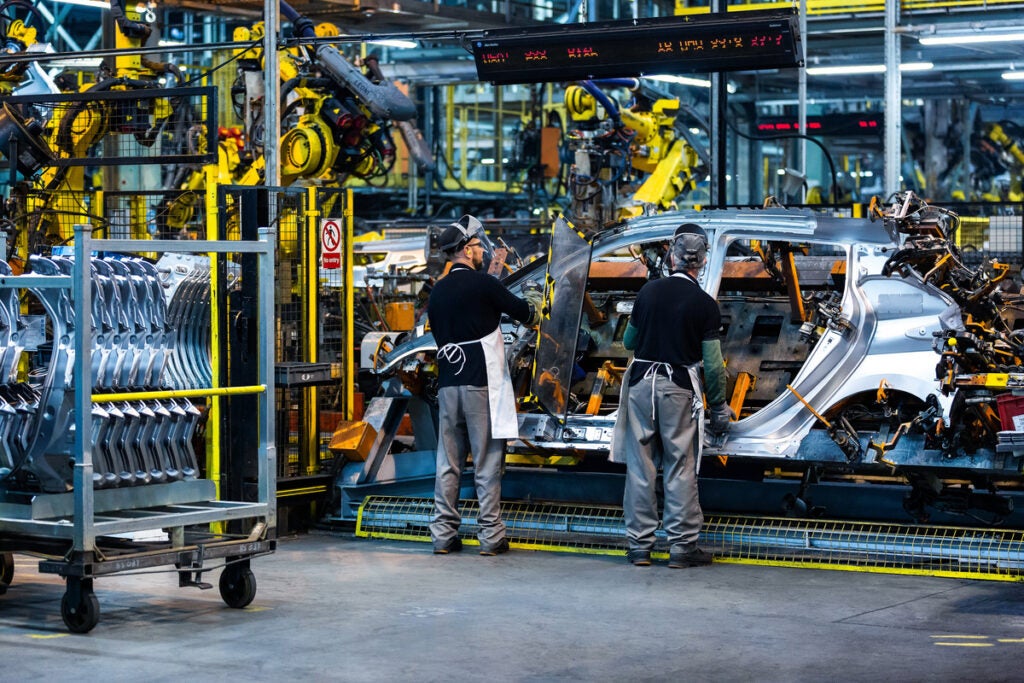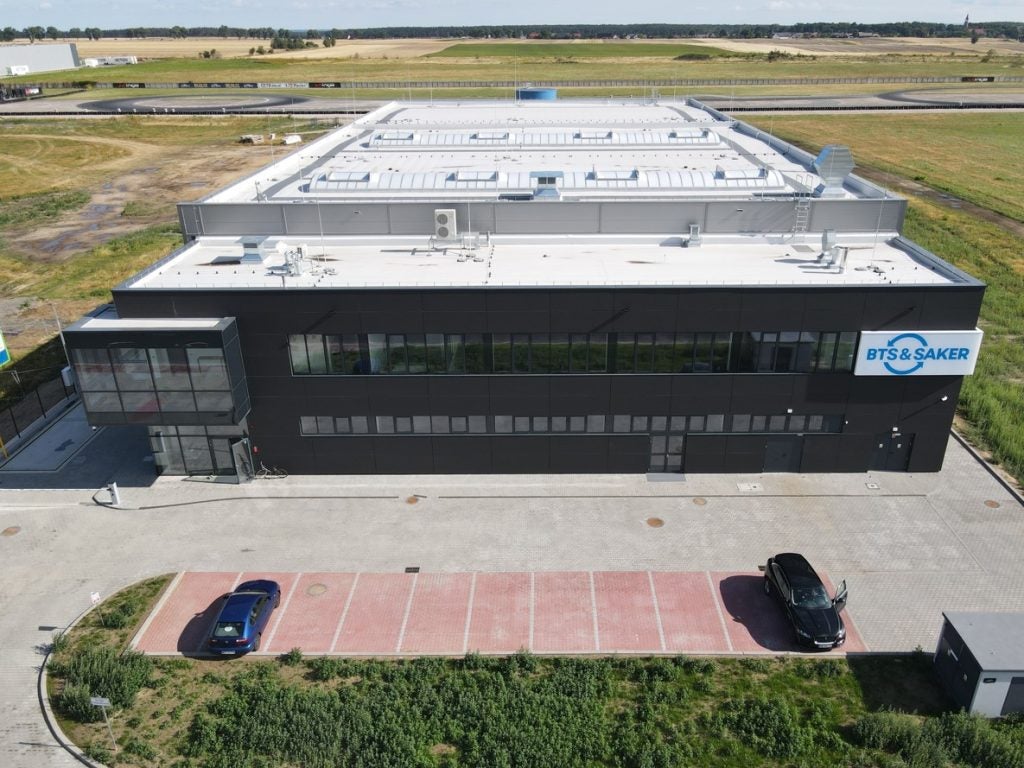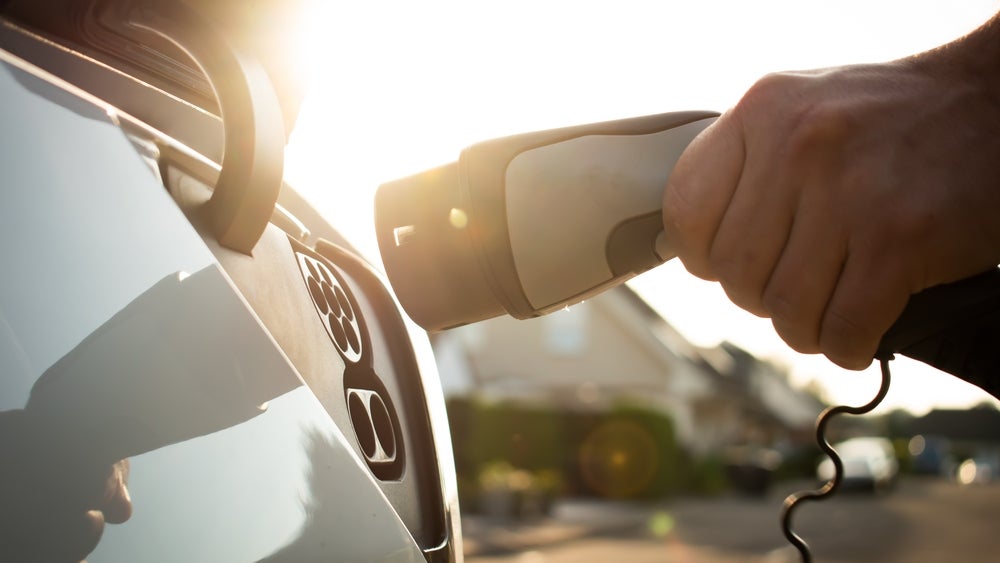
With the market share of EVs in the UK already projected to exceed government targets, a weakening of the zero-emission vehicle target would represent a decline in EV sales growth, potentially costing the UK billions. Over the past few weeks, the UK’s ruling Conservative Party has positioned itself firmly as the party of petrol, with Prime Minister Rishi Sunak ordering a review into low-traffic neighbourhoods in an apparent bid to appeal to motorists following his party’s recent Uxbridge by-election win – in large part fought in opposition to the expansion of London’s Ultra Low Emission Zone. Last week, Business Secretary Kemi Badenoch pushed back against the UK’s zero-emission vehicle (ZEV) mandates, suggesting they could stifle investment and lead to British job losses. Yet some experts claim that the UK’s relative success when it comes to adopting electric vehicles (EVs) means that Britain stands to lose investment should it not keep up with other countries’ EV targets. According to the most recent data for 2023 from the European Automobile Manufacturers’ Association (ACEA), the UK is among the top ten EU countries (including the UK) for EVs as a share of total new car sales, with battery electric vehicles (BEVs) accounting for 16.1% of such sales between January and June of this year. As such, the UK is currently running ahead of other major economies such as Germany and France. Through June of this year, 152,965 new BEVs were registered in Britain, according to ACEA, representing a 32% growth compared with the first two quarters of 2022.
India outperforms
The Indian market accelerated further in June, as the selling rate reached 4.89 million units/year, the second highest rate on record, and up 4% from a strong May. Total Light Vehicle (LV) wholesales in June were at 379k units, down by 1% from the previous month but up 2% year-on-year (YoY). Sales were boosted by robust demand for new models and improvement in semiconductors supplies. Passenger Vehicle (PV) sales slipped by 1% month-on-month (MoM) to 322k units (+3% YoY), while the sales of Light Commercial Vehicles (LCVs) with GVW up to 6T inched up by 1% over the May tally to 57k units (+1% YoY). In June, retail sales of PVs and LCVs were at 337k units, versus 340k units in the month before, according to the Federation of Automobile Dealers Associations (FADA). “The PV segment navigated through a mixed landscape characterized by variable demand, dynamic product portfolios and oscillating market sentiments,” said FADA President Manish Raj Singhania. Meanwhile, the average PV inventory rose for the fifth straight month, climbing to 45-49 days at the end of June, from 40-45 days in May and 39-41 days in April, according to FADA.
Used parts on eBay
According to research carried out by eBay, UK motorists saved £99 million in 2022 by opting for used car parts and accessories instead of brand-new replacements. This growth came about due to the company re-launching its Certified Recycled Parts programme, which sells recycled vehicle parts from over 80 certified sellers. Findings from the research also showed that certified recycled parts can be up to 70% cheaper than purchasing parts directly from OEMs. These parts also assist the environment by reducing carbon emissions, with eBay shoppers saving 16,000 tonnes CO2 last year, and preventing 3,000,000kg of waste from ending up in landfills by purchasing used car parts and accessories. We spoke to eBay’s Laura Richards, category lead, vehicle parts and accessories eBay UK Ltd, and Marc Trent, CEO, Charles Trent, to learn more about these findings as well as to discuss what the future holds.
China overcapacity looms
Is China headed for more EV battery capacity than its own industry can absorb? Jiangxi Judian New Energy Technology said it started construction this week of a new factory for solid state lithium batteries for electric vehicles (EVs) in Ganzhou, Jiangxi province. The company, owned by Shenzhen Fuxin Industrial Technology, an energy storage system (ESS) manufacturer, was investing CNY10bn (US$1.39bn) on production capacity for 10 gigawatt hours (GWh) of batteries per year. The first phase involves construction of 2GWh of cell capacity and a further 2GWh of battery pack capacity annually. The site covers 400,000 sq m half of which will be used in the first phase of construction.
Uniforms to insulators
Honda’s US unit is recycling uniforms used by some workers. Worn at manufacturing and R&D facilities, they are converted into sound absorbing insulation for vehicles. The recycling programme keeps 45,000 pounds of uniforms out of landfills each month, the automaker claimed. Since launch in late 2021, the programme has recycled 380,000 pounds. Honda works with uniform suppliers Aramark and Cintas along with insulation supplier UGN Automotive and textile recycler Leigh Fibers.
Tesla. Hacked.
Researchers at Berlin Technical University have used a technique called ‘voltage glitching’ to hack into a Tesla Model 3. The hack focused on the hardware supporting Tesla’s infotainment system, allowing them to access premium features that would typically require paid upgrades. Three students at TU Berlin, along with another independent researcher, said the attack required physical access to the car. They will present their findings at the Black Hat cybersecurity conference in Las Vegas later this month. Voltage glitching is when a high-voltage pulse is injected on to a power rail of a device. Correct timing of the pulse can corrupt data or jolt a device to skip its authentication process which secures it against unauthorised access.
Lotus on a roll
Lotus has claimed a “record breaking” first half of 2023 after production rose 381% to 2,200 Emiras for which there is a two year order backlog. The Geely controlled sportscar maker also claimed a backlog of 17,000 vehicles worldwide for the Eletre and Emira. Eletre production in China ramped up in the first half with deliveries starting in China at the end of March with UK and European sales starting later this summer.
Canada joins talks
Canadian trade union Unifor began formal contract talks with the Detroit Three automakers this week. Ford, General Motors and Stellantis were already in negotiations with the United Auto Workers (UAW). For the first time since 1999, Unifor and UAW’s contract agreements with the Detroit Three are set to expire at the same time in September.
Top M&A advisers
BS and PwC were the top mergers and acquisitions (M&A) financial advisers in the automotive sector during the first half (H1) of 2023 by value and volume, respectively, according to the latest financial advisers league table by GlobalData, which ranks financial advisers by the value and volume of M&A deals on which they advised. Based on its Financial Deals Database, the leading data and analytics company has revealed that UBS achieved its leading position in terms of value by advising on $15.1 billion worth of deals. Meanwhile, PwC led in terms of volume by advising on a total of three deals. Aurojyoti Bose, Lead Analyst at GlobalData, comments: “UBS saw its ranking by value improve from 14th position in H1 2022 to the top position in H1 2023. It was the clear winner by value, outpacing its peers by a significant margin by this metric. UBS was the only firm to surpass the $10 billion mark in total deal value in H1 2023, while other advisers were not able to reach at least $1 billion in total deal value.
Germans top Korea imports
Sales of imported light passenger vehicles in South Korea fell slightly to 21,138 units in July 2023 from 21,423 a year earlier, according to the Korea Automobile Importers & Distributors Association (KAIDA). The data did not include some non affiliated brands including Tesla. The slowdown followed a strong surge in the previous month, ahead of the end of tax incentives at the end of June, while some importers also struggled with low inventories. Sales by domestic vehicle manufacturers also declined in July, by almost 6% to 115,358 units. Lexus, Porsche and Volvo were the mainstream performers last month while Audi, Mini and Ford were the biggest volume losers. In the first seven months of the year, import sales were slightly lower at 151,827 units from 152,432 in the same period of 2022 with German brands accounting for 75%.
Mitsubishi expansion
Mitsubishi Motors (MMC) plans to invest IDR5.7trn (US$375m) in Indonesia by the end of 2024 to expand capacity and introduce new models, according to local reports citing a government official. At the opening of the Gaikindo Indonesia International Auto Show this week industry minister Agus Gumiwang Kartasasmita said the automaker planned to expand capacity at its Bekasi plant to 250,000 units next year. He was understood to have met with MMC executives during a recent trip to Japan.
UAW bins Stellantis
United Auto Workers (UAW) union president Shawn Fain discarded contract proposals from Stellantis and called them “a slap in the face” as frustration mounted over concessions demanded during labour negotiations. On Tuesday, Fain denounced Stellantis’ proposals as insulting, saying the company’s demands included reducing healthcare coverage, cutting vacation days for new hires, reducing employer contributions to 401(k) plans, and removing the cap on temporary employees, according to Reuters. Fain disposed of a copy of the Stellantis proposal into a bin and said: “That’s where it belongs – in the trash – because that’s what it is.”
The deal of the week
Mahindra and Mahindra has raised $145 million from Temasek for its electric vehicle unit. Temasek Holdings Pvt Ltd (Temasek) is an investment company. The binding agreement is for Temasek to invest in MEAL (Mahindra Electric Automobile Limited), the four-wheeler (4W) passenger electric vehicle company. Temasek will invest in the form of Compulsorily Convertible Preference Shares (‘CCPS’) at a valuation of up to INR 80,580 crore, resulting in Temasek’s ownership of a 1.49% to 2.97% stake in MEAL. Temasek will join British International Investments (BII) as an investor in MEAL. With this investment, Mahindra’s EV subsidiary’s valuation goes up by 15% to 805.8 billion rupees ($9.8 billion).
Magna on the up
Magna International has raised its full-year profit and sales outlook after a posting a positive set of quarterly financial results. Magna said that sales increased 17% to $11.0 billion. Adjusted EBIT increased to $603 million in the second quarter of 2023 compared to $358 million in the second quarter of 2022. Swamy Kotagiri, Magna’s Chief Executive Officer, said: “I am pleased with our second quarter operating performance, which reflects continued strong execution on higher organic sales and cost reduction actions being taken across the company. We remain highly focused on executing our strategy and remain confident in our ability to meet our short- and long-term growth and margin outlooks.”
China rising
Chinese electric vehicle (EV) manufacturer Hozon Auto plans to assemble its Neta-branded vehicles in Indonesia from 2024, according to media reports in China. Zhejiang-based Hozon signed an agreement earlier this month with local contract assembler Handal Indonesia Motor which has an assembly plant in Bekasi near Jakarta. Handal Indonesia already assembles Chery vehicles and, until recently, also for Hyundai which now operates its own plant. The company was scheduled to begin assembly of Hozon cars in the second quarter of 2024 from completely knocked down (CKD) kits imported from China.
Have a nice weekend.
Graeme Roberts, Deputy Editor, Just Auto


